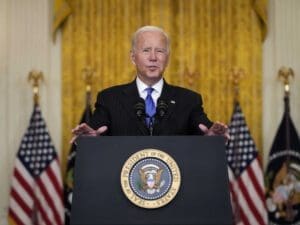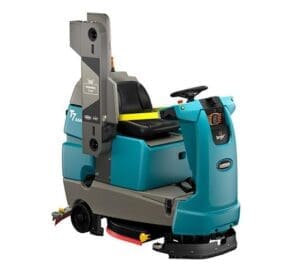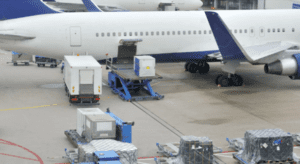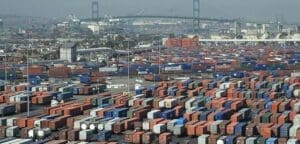 It’s hard to believe that after so many years, a legend of Boston has officially called it quits. A post earlier this week on Facebook read “After decades of brotherhood, touring the world and making great records together, we have decided to no longer continue on as a band. Above all, we want to express our sincere gratitude to every single one of you who have supported us. We could not have done any of it without you. Love Always, The Mighty Mighty BossToneS.” It is wild to think that after nearly forty years of performing together, except for a brief hiatus in the mid-2000’s, that the band is breaking up. My older brother was a big fan, so I remember hearing the Bosstones coming from the stereo in his room quite often. They ended up being one of the first bands I saw live at Lollapalooza a long time ago, and a band I would seek out after that. The Bosstones were a classic Boston band that somehow even featured a member that simply known as the Dancing Bosstone. So after nearly forty years, I say thanks for the memories. And now on to this week’s logistics news.
It’s hard to believe that after so many years, a legend of Boston has officially called it quits. A post earlier this week on Facebook read “After decades of brotherhood, touring the world and making great records together, we have decided to no longer continue on as a band. Above all, we want to express our sincere gratitude to every single one of you who have supported us. We could not have done any of it without you. Love Always, The Mighty Mighty BossToneS.” It is wild to think that after nearly forty years of performing together, except for a brief hiatus in the mid-2000’s, that the band is breaking up. My older brother was a big fan, so I remember hearing the Bosstones coming from the stereo in his room quite often. They ended up being one of the first bands I saw live at Lollapalooza a long time ago, and a band I would seek out after that. The Bosstones were a classic Boston band that somehow even featured a member that simply known as the Dancing Bosstone. So after nearly forty years, I say thanks for the memories. And now on to this week’s logistics news.
- FedEx partners with HBCUs to increase the pipeline of Black supply chain professionals
- US crackdown on forced China labor risks supply chain snarls
- UPS Q4 earnings jump 35 percent
- Record robot orders in 2021
- Ocado unveils new, lighter robots in grocery delivery push
- Sam’s Club rolling out inventory accessory for cleaning robots
- Airline group says global cargo volume grew 6.9 percent in 2021
- Port congestion spreads across more US import gateways
 Earlier this week, FedEx announced a partnership with eight historically Black colleges and universities (HBCUs) to build a pipeline of logistics and supply chain professionals. The company is launching the Student Ambassador Program on March 1 at Mississippi Valley State University, Jackson State University, Fayetteville State University, LeMoyne-Owen College, Lane College, Tennessee State University, Paul Quinn College, and Miles College. The inaugural class of 16 students will meet regularly with FedEx executives for insight, career guidance, and mentorship. While logistics will be a part of the curriculum, FedEx said the broader focus will be to educate the students for careers after college. FedEx President and Chief Operating Officer Raj Subramaniam said it’s part of an ongoing commitment to HBCUs, including a $5 million donation in 2021.
Earlier this week, FedEx announced a partnership with eight historically Black colleges and universities (HBCUs) to build a pipeline of logistics and supply chain professionals. The company is launching the Student Ambassador Program on March 1 at Mississippi Valley State University, Jackson State University, Fayetteville State University, LeMoyne-Owen College, Lane College, Tennessee State University, Paul Quinn College, and Miles College. The inaugural class of 16 students will meet regularly with FedEx executives for insight, career guidance, and mentorship. While logistics will be a part of the curriculum, FedEx said the broader focus will be to educate the students for careers after college. FedEx President and Chief Operating Officer Raj Subramaniam said it’s part of an ongoing commitment to HBCUs, including a $5 million donation in 2021.
 More and more companies, and countries, are looking deeper into their trading partner relationships for potential forced labor violations. The US has enacted new labor laws that could cause supply chain snarls. The Uyghur Forced Labor Prevention Act adds a presumption under the US Tariff Act that goods sourced from or produced in Xinjiang—home to many of China’s Uyghur and other Muslim minority populations—are made with forced labor. To import products from the region, companies will have to document that they aren’t sourced from forced labor. The law, signed by President Biden December 23, is meant to push China to end what the US and other countries have called repression of its Uyghur and other Muslim minorities. Companies will have to present strong documentation to the US Customs and Border Protection, beginning June 21, that no part of their products contain components sourced or manufactured in Xinjiang or by Uyghurs. The region is one of the world’s most productive areas of cotton and polysilicon, which is used in solar panels.
More and more companies, and countries, are looking deeper into their trading partner relationships for potential forced labor violations. The US has enacted new labor laws that could cause supply chain snarls. The Uyghur Forced Labor Prevention Act adds a presumption under the US Tariff Act that goods sourced from or produced in Xinjiang—home to many of China’s Uyghur and other Muslim minority populations—are made with forced labor. To import products from the region, companies will have to document that they aren’t sourced from forced labor. The law, signed by President Biden December 23, is meant to push China to end what the US and other countries have called repression of its Uyghur and other Muslim minorities. Companies will have to present strong documentation to the US Customs and Border Protection, beginning June 21, that no part of their products contain components sourced or manufactured in Xinjiang or by Uyghurs. The region is one of the world’s most productive areas of cotton and polysilicon, which is used in solar panels.
 UPS posted record quarterly earnings on Tuesday and forecast 2022 revenue above expectations, driven by higher shipping rates and e-commerce demand, sending shares of the logistics giant up 7 percent before the bell. US retailers reported a better-than-expected $886.7 billion in sales during the crucial holiday season, a 14.1 percent rise from a year earlier. UPS reported an 11.5 percent jump in revenue to $27.77 billion in the three months to December 31, with the average revenue per piece increasing by 11.3 percent. The company also forecast revenue of about $102 billion in 2022, beating an average Refinitiv-IBES estimate of $100 billion.
UPS posted record quarterly earnings on Tuesday and forecast 2022 revenue above expectations, driven by higher shipping rates and e-commerce demand, sending shares of the logistics giant up 7 percent before the bell. US retailers reported a better-than-expected $886.7 billion in sales during the crucial holiday season, a 14.1 percent rise from a year earlier. UPS reported an 11.5 percent jump in revenue to $27.77 billion in the three months to December 31, with the average revenue per piece increasing by 11.3 percent. The company also forecast revenue of about $102 billion in 2022, beating an average Refinitiv-IBES estimate of $100 billion.
 2021 saw more robots join the US workforce than any other year, and it looks like 2022 will bring about more of the same. Companies across North America laid out more than $2 billion for almost 40,000 robots in 2021 to help them contend with record demand and a pandemic-fueled labor shortage. While the automotive industry has been the largest contributor to the robotic workforce, 2021 saw robots expand to more sectors. Factories and other industrial users ordered 39,708 robots in 2021, or 28 percent more than in 2020, according to data compiled by the industry group the Association for Advancing Automation, also known as A3. The previous annual record for robot orders was set in 2017 – when North American companies ordered 34,904 robots valued at $1.9 billion. Some of the fastest growth in robot orders is in the metals and food and consumer goods industries.
2021 saw more robots join the US workforce than any other year, and it looks like 2022 will bring about more of the same. Companies across North America laid out more than $2 billion for almost 40,000 robots in 2021 to help them contend with record demand and a pandemic-fueled labor shortage. While the automotive industry has been the largest contributor to the robotic workforce, 2021 saw robots expand to more sectors. Factories and other industrial users ordered 39,708 robots in 2021, or 28 percent more than in 2020, according to data compiled by the industry group the Association for Advancing Automation, also known as A3. The previous annual record for robot orders was set in 2017 – when North American companies ordered 34,904 robots valued at $1.9 billion. Some of the fastest growth in robot orders is in the metals and food and consumer goods industries.
 Earlier this week, Ocado announced that it has developed new, lower-cost technology that will speed up online grocery deliveries. The new technology includes lighter grids, more efficient robots, and robotic arms able to directly pick products. As part of the changes, Ocado can enable delivery of last-minute orders as well as those with longer lead times all from the same van. Grocers don’t have to choose between offering a short-term or longer-term service to their customers. The company also unveiled a virtual distribution center which will use artificial intelligence and machine learning to help power smaller fulfillment centers closer to customers. Ocado’s value has soared by more than 500 percent since 2016 as investors bet that the British company will become the premier provider of online grocery delivery services worldwide.
Earlier this week, Ocado announced that it has developed new, lower-cost technology that will speed up online grocery deliveries. The new technology includes lighter grids, more efficient robots, and robotic arms able to directly pick products. As part of the changes, Ocado can enable delivery of last-minute orders as well as those with longer lead times all from the same van. Grocers don’t have to choose between offering a short-term or longer-term service to their customers. The company also unveiled a virtual distribution center which will use artificial intelligence and machine learning to help power smaller fulfillment centers closer to customers. Ocado’s value has soared by more than 500 percent since 2016 as investors bet that the British company will become the premier provider of online grocery delivery services worldwide.
 In the final piece of robot news, Sam’s Club is rolling out an inventory accessory for its robotic cleaners. Featuring a first-of-its-kind dual-function design, the scanning tower is being fitted to the nearly 600 autonomous floor scrubbers already operating at Sam’s Club locations across the country. Once installed on a scrubber, the cloud-connected Inventory Scan tower can capture data as it moves autonomously around the club. Reports are then delivered to the club managers that provide such insights as verification of pricing accuracy, planogram compliance, product stock levels and product localization. Each function negates the need for time-consuming and manual processes, thereby reducing waste and inventory loss.
In the final piece of robot news, Sam’s Club is rolling out an inventory accessory for its robotic cleaners. Featuring a first-of-its-kind dual-function design, the scanning tower is being fitted to the nearly 600 autonomous floor scrubbers already operating at Sam’s Club locations across the country. Once installed on a scrubber, the cloud-connected Inventory Scan tower can capture data as it moves autonomously around the club. Reports are then delivered to the club managers that provide such insights as verification of pricing accuracy, planogram compliance, product stock levels and product localization. Each function negates the need for time-consuming and manual processes, thereby reducing waste and inventory loss.
 According to the International Air Transport Association, air cargo demand rebounded in December, growing 8.9 percent over the 2019 level, after a stumble in November when airlines’ throughput increased only 3.9 percent because of congestion at major airports. Airlines in North America topped the growth chart in December, with international demand growing 20.5 percent versus the same month in 2019. Helped by government stimulus measures and strong consumption, the group enjoyed a 20.2 percent hike in shipment levels for the year. No capacity was lost because all-cargo operators deployed more aircraft to the trans-Pacific region where higher yields were available. The strong finish left the industry with a 6.9 percent gain in cargo volume for the full year versus 2019, with the key international sector better by 7.4 percent.
According to the International Air Transport Association, air cargo demand rebounded in December, growing 8.9 percent over the 2019 level, after a stumble in November when airlines’ throughput increased only 3.9 percent because of congestion at major airports. Airlines in North America topped the growth chart in December, with international demand growing 20.5 percent versus the same month in 2019. Helped by government stimulus measures and strong consumption, the group enjoyed a 20.2 percent hike in shipment levels for the year. No capacity was lost because all-cargo operators deployed more aircraft to the trans-Pacific region where higher yields were available. The strong finish left the industry with a 6.9 percent gain in cargo volume for the full year versus 2019, with the key international sector better by 7.4 percent.
 We have written about the ongoing port congestion in California quite a bit lately. Well, the problem is not confined to the West Coast. The average wait time for a berth at the busiest East Coast gateway, the Port of New York and New Jersey, extended to 4.2 days last week, according to the port’s data, up from 1.6 days last January. At the Port of Charleston on Thursday, a backup of 19 container ships was waiting offshore for a berth. New Jersey port officials say its congestion is being caused, in part, by Covid-19-related worker absences. Charleston officials say their backup is mainly due to a surge of imports that has clogged terminals, leaving limited space to unload inbound containers. The number of containers waiting more than 15 days for pickup at Charleston, the country’s eighth-largest gateway for container imports, exceeded 7,000 boxes last week, an increase of 40 percent compared with one month earlier.
We have written about the ongoing port congestion in California quite a bit lately. Well, the problem is not confined to the West Coast. The average wait time for a berth at the busiest East Coast gateway, the Port of New York and New Jersey, extended to 4.2 days last week, according to the port’s data, up from 1.6 days last January. At the Port of Charleston on Thursday, a backup of 19 container ships was waiting offshore for a berth. New Jersey port officials say its congestion is being caused, in part, by Covid-19-related worker absences. Charleston officials say their backup is mainly due to a surge of imports that has clogged terminals, leaving limited space to unload inbound containers. The number of containers waiting more than 15 days for pickup at Charleston, the country’s eighth-largest gateway for container imports, exceeded 7,000 boxes last week, an increase of 40 percent compared with one month earlier.
That’s all for this week. Enjoy the weekend and the song of the week, Someday I Suppose by the Mighty Mighty Bosstones.
















